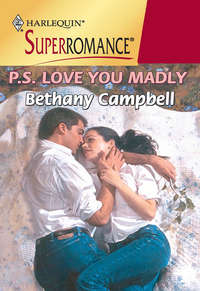
Полная версия
One True Secret
“I understand,” said Merriman, mentally adding Your Highness. He saw Eli looking her over, as if trying to figure out exactly who lived behind that glamorous face. Merriman shrugged a goodbye to them both, then trudged back up the path. The wind was rising, and the clouds rolling in thicker and darker.
The pool area had a garden next to it, and the garden lured him. He liked the lushness of its tropical flowers, their startling spectrum of colors.
But he stopped before reaching the house and glanced again at Eli and Emerson Roth. Their backs were to him. Beyond them, the sea stretched, colored like steel, and the sky had turned dark gray. Even the sand looked grayish.
Eli wore wheat-colored jeans and a red shirt. The woman was a splash of turquoise beside him. Except for the muted greens of a few plants, he and she offered the only bright colors; they caught the eye and held it.
To hell with it, he thought. Permission or no permission, he’d take a few shots. She couldn’t object to having her back photographed could she? He raised the camera and snapped them, one, two, three times.
Then he turned toward the house and let himself in through the iron gate. He sniffed the air and could scent the smell of oncoming rain mingling with the heavy fragrance of the flowers. He walked slowly through the garden until an unbelievable tree caught his interest.
The tree was huge, but looked as if dozens of smaller trees had grown together, fusing into one. From above it dropped dozens of new roots to the ground, so that it seemed like a one-tree jungle. It was surrounded by a colorful stand of other plants.
He tried to make his way around this bizarre tree, to see it more closely. But then a flower caught his eye, a peculiar flower of gold and purple and scarlet.
Momentarily distracted, he dropped to his knee and began to take shots of this odd blossom. Suddenly he heard a rustling in the foliage. It sounded like the rustling of something large.
Merriman went still as a stone, wondering if the Keys were so tropical that they harbored things like anacondas or man-eating pythons. He knew there were alligators or crocodiles, but would they come this near to a house?
The rustling came closer, and Merriman held his breath. Of course, alligators crept around buildings—weren’t there always horror stories in the paper about them eating pet poodles and the occasional hapless tourist?
He vaguely remembered, from watching Peter Pan, that alligators had yellow eyes and could move with lethal speed. Something made a scuttling sound, almost next to him now, and Merriman whirled and stared down—into a pair of glinting yellow eyes.
After a split second of horror, he was relieved to see that the eyes belonged to the fattest cat he’d ever seen. Blue-gray, with a white nose, breast and paws, it stared at him with a disdain as massive as its body.
Well, thought Merriman, if he couldn’t snap the family, he could snap the family cat. This rotund beast had a fancy collar, and a tag shaped like a mouse. Say cheese, thought Merriman, looking through the lens.
Then, from behind his tree, Merriman heard light footsteps. The cat heard them, too, and cocked its head in that direction. It hunkered lower to the ground, as if trying to hide.
“Bunbury! It’s no good. I see you.”
The voice was feminine and breathless—and nearby. More rustling, and the animal cringed lower, its ears flattening. A pair of slender hands struggled to grab the cat by its fat middle.
Merriman found himself looking into a young woman’s face. Her eyes widened, and her mouth formed a small, perfect O of shock.
“Oh, goodness,” she breathed, and she looked paralyzed, crouched there, her hands motionless on the cat’s gray fur.
Merriman lowered his camera. The sight of her was like a kick in his chest. She was lovely. Her hair was the dark golden brown of honey, and so were her eyes. Her skin was a paler shade of honey, and she wore a T-shirt that matched her hair.
A woman made out of honey, Merriman thought illogically, but his system, ignoring logic, said Yum.
She seemed in dismay, almost terror. “You can’t take my picture.”
“I—I wasn’t,” he stammered. “Just the cat’s.”
“You can’t take the cat’s picture.” Her voice was panicky.
“I’m sorry,” Merriman said with all the sincerity he could muster. He meant it. She was such an appealing creature, the last thing he wanted was to upset her. “I didn’t know the cat was here. When I saw him, it was an automatic reflex. I didn’t mean—”
She snatched the cat up and clutched it protectively against her breast. She seemed too upset to gather her thoughts. “He’s not supposed to be out here. I was supposed to get everything inside.”
He couldn’t stop looking at her. “Everything?” he echoed.
“All the animals. I couldn’t find him. You know—cats.”
“I know cats. Yes. Independent. I used to be one. I mean, I used to have one. Do you want me to help you? He looks heavy.”
“No. No.” She struggled to rise, but she was trying not to crush the foliage and still balance the cat. She had her arms wrapped round him under his forelegs, so he was staring at Merriman over the great mound of his belly. He looked like King Henry VIII.
The woman almost lost her balance, so Merriman sprang to his feet, putting out a hand to steady her. She went stock-still. “I didn’t know you were out here,” she said. “I looked out and saw Bunbury—”
He kept his hand on her upper arm, just to make sure she was all right and to convey his concern. “Bunbury is?”
“The cat.” She swallowed. “I didn’t see any people. Why were you behind that tree?”
“I never saw a tree like that. I just wanted to look closer.”
“You were squatting down behind it, hiding,” she accused. Her cheeks had flushed an enticing pink.
“There was a flower. A strange flower. That one.” He pointed an accusing finger at it. “I was kneeling to take a picture, that’s all.”
She hugged the cat more tightly to her. It screwed up its face in protest and emitted a sound that was more like a hoarse chirp than a meow. Merriman realized the woman was staring just as intently at him as he was at her. He still had his hand on her arm, but she made no protest, so he was happy to keep touching her.
Her face was gentle, not flamboyantly pretty like her sister’s, but pretty with a natural sweetness that almost hypnotized him. Her hair was brushed in a soft wave away from her face and hung nearly to her shoulders.
“I’m Merriman, the photographer,” he said, extending his free hand. “Please shake hands so I know you forgive me for startling you. I apologize. From the heart.”
From a heart that ached oddly and pleasantly, he realized. She looked doubtful, but then tried to reach for his hand. But that entailed juggling the cat, who protested with another of his weird, grating chirps.
“Let me take him for you,” Merriman said, scrambling to get one arm around the cat. He managed, and Bunbury dangled like a sulky sack of grain in his hold.
Almost shyly, Merriman offered his hand again. She studied it, then, far more shyly, took it. He stared down at her, tongue-tied. Her grasp was light and cool, yet firm.
“I’m Claire Roth,” she said. “I—I saw you walking down on the beach. I didn’t know you’d come back here.”
Merriman reluctantly let her draw her hand away. She was edging back from him, clearly about to make a quick escape. He didn’t want her to go. Desperately, he said, “The flowers—the trees. I’m taking pictures, but I don’t know what I’m taking pictures of. This tree—what is it?”
“A banyan,” she almost whispered.
“It looks like sixteen trees grown together. Those things dropping down, are they roots, or just vines? How big will the thing get?”
“It’s all one tree. Yes, they’re roots. It could grow a hundred feet tall. But it probably won’t.”
Her eyes rose to the sky. “Storms.” She looked worried.
“Hurricanes?” He should have glanced at the sky, too, but he didn’t have to. He could sense the morning darkening and the wind rising. And he couldn’t stop taking in her face.
A gust of wind lifted her hair, revealing a delicate ear that had never been pierced. She nodded. “Hurricanes. Tropical storms. We lose branches.”
Something about her made him feel giddy as a schoolboy. “There’s a watch or a warning. Does it scare you?”
She nodded. “A little. I—I need to go in now.”
“I’ll carry the cat,” he offered.
Her expression went uncomfortable, and hastily he added, “Only to the door. That’s all. Do you have to go in? I’d sure like somebody to tell me the names of all these plants.”
He was pleased to see her hesitate. She shook her head. “I didn’t mean to talk to anybody.”
“I wouldn’t ask you anything personal,” he vowed, forgetting that he owed any loyalty to Eli. “If you could just tell me the names, and I could write them down. Like that thing— I don’t know what it is.”
Still clutching Bunbury in a one-armed hold, he pointed at the peculiar flower of purple and gold. “I’ll get back, develop all this stuff and not know how to look it up.”
She still acted as if she had reservations. But she said, “It’s a bird-of-paradise.” She paused, then said, “Some people say it looks like a bird in flight. It’s unusual, because it’s actually pollinated by birds, not bees.”
“Really,” Merriman said, as if this was the most fascinating fact he’d ever heard. Perhaps it was, coming from her lips, those words about birds and bees.
He rubbed the cat’s stomach so it would stay peaceful. Merriman tilted his head toward a climbing vine with ornate lavender flowers. “And those? Orchids?”
She pushed a wayward lock of hair from her cheek. “No. They’re passionflowers.”
He rubbed the cat harder. “Passionflowers. Why are they called that?”
“Well…” She still seemed torn about lingering, but clearly she loved the plants and wanted him to appreciate them. “It’s kind of a complicated legend…”
“I’d love to hear it,” Merriman told her with so much sincerity that it made him dizzy. He rubbed the cat until it had no choice but to purr in sensual pleasure.
EMERSON KICKED OFF her sandals so she could walk in the damp sand and dodge the surf when it came foaming onto the beach. It was a game she’d played since childhood, and she loved it.
This, she calculated, would force Eli Garner to keep his distance and try to question her against the wind and over the roar of the waves. That, or he’d have to shed his own shoes and a considerable amount of dignity to stay at her side.
She was surprised when he undid his sandals and set them next to hers. He rolled his jeans up to his shins, stuck his hands in his pockets and strolled to the sea’s edge beside her as if it were the most natural thing in the world.
But today the sea was not playful. The waves that came rolling in were rough, and they did not so much collapse in a froth on the sand as throw themselves on it in assault.
The wind was cool and whipped Emerson’s long skirt around her. She had to gather it up and clench its hem in her fist. This left her legs bare to the knee, and Eli gave them a glance that seemed coolly interested. She wished she’d worn capri pants.
The wind blew her hair about, and his, too. He had thick hair, longish and wavy. He reached into his pocket and put on his sunglasses. They gave him a masked look.
She sidestepped a wave more aggressive than the rest and accidentally bumped into him. The water surged around her calves, and she nearly lost her balance when the spent wave pulled seaward again.
His arm shot out to steady her, settling on her waist, bracing her so she didn’t stumble. It seemed a perfunctory gesture, brief and businesslike. His hand fell away almost immediately. She was glad. His touch implied an intimacy she found dangerously intriguing.
“Careful,” he warned.
“I didn’t realize you were that close,” she grumbled.
“I have to stay close to hear you. Looks like we’ve got some weather coming.”
She glanced at the far horizon. There, the clouds were almost black, and a gray veil seemed to spill from them: rain.
She said, “They’ve upgraded the storm back to a hurricane. It’s in the Caribbean and moving fast.”
He studied her from behind the mask of his sunglasses. “Hurricane? When did they upgrade it? It was still a tropical storm when we left Key West.”
“I heard it on the radio right before you came.” She tried to smooth her streaming hair. “It’s growing. And picking up speed.”
“Does that scare you?” he asked.
Few things frightened Emerson, and she hated to admit that anything could frighten her. But hurricanes did. She tried to sound philosophic. “Hurricanes are the price you pay for living here.”
“That didn’t answer the question.”
Damn, he must sense her uneasiness. “Only a fool wouldn’t respect a hurricane. But it doesn’t scare me until I know it’s close. I’ve seen what they can do.”
“So have I. So what do you do when one’s coming at you?”
“The usual. We have emergency supplies. A propane stove, lanterns, the whole disaster kit. Even a special room. We hope for the best and close the hurricane shutters.”
He looked at the dark horizon, then back at the house. “Maybe you should shut them soon.”
She tossed her head. “Frenchy will. As soon as you leave.”
“I see. And Frenchy would be…”
“The groundskeeper and maintenance man.”
“Frenchy, I take it, is French?”
“No. Frenchy is Norwegian.”
“Then why’s he called Frenchy?”
“I don’t know. Things like that happen in the Keys.”
He seemed to reflect on this. She added, “He won’t talk to you under any circumstances. He’s signed a confidentiality agreement. An ironclad one.”
Take that, she thought. But at that moment, she had to dodge another wave and once again nearly collided with him. Why did he have to stay so close?
But he didn’t seem to notice, and he changed the subject. “So this is the beach your grandfather loved so much.”
She caught his careful wording. “He still loves it,” she said. “There’s no need to use the past tense.”
“He still comes here?” Eli asked, just casually enough.
“Of course.” She pushed her hair out of her eyes. “It’s the main reason he bought this place. Maybe we should turn back. This isn’t a nice day to be here.”
“I don’t mind.” His gaze swept up and down the beach.
“It’s private here. Very private.”
“Yes. It is.”
“No immediate neighbors. I looked at it on a detailed map. To the south, a mangrove swamp. To the north, a mangrove swamp. To the east, a long tract of wild country that your family owns. And to the west, the Gulf.”
She shrugged. He walked so close now that strands of her hair flicked and danced against the shoulder of his shirt. Her gauzy sleeve, damp with spray, blew against his tattooed arm.
She stopped. “The wind’s getting higher. I feel it. We’ll turn back now.”
She walked to his other side, no longer wanting to play tag with the water. She moved out of its reach, letting her skirt fall to her ankles again.
He kept even with her, and he tilted his head toward the cove. “You’d have a tough time getting here by boat, if I read the charts right. It’s shallow with a rough bottom. Almost impossible to land here.”
“That’s right,” she said, quickening her stride toward home.
“So if a sightseer should come—”
Or a snoop— she added mentally.
“—he could only see this spot from a distance. That wall of trees hides the house. All he could see is the top of the house rising over the branches. Or somebody on this beach.”
“Not many people come sight-seeing,” she returned defensively. “People come to the Keys to fish and boat and party. Not to see an aging painter.”
“I don’t know about that. I did.”
He smiled at her. He had an interesting mouth, a full lower lip for so lean a face. The smile was knowing, and there was a dare in it.
She ignored the dare. “My grandfather’s famous in the art world. But to the general public? He’s not a celebrity.”
His maddening smile stayed in place, bracketed by wry lines. “He used to be. People would see his pictures in the glossy magazines, Vanity Fair, Vogue.”
A prickle of apprehension rippled up her spine. “It got old for him. Stale. He found that sort of thing less and less attractive.”
He stopped, and she started to walk on without him. “Wait,” he said.
She stopped, but turned to stare at him in challenge. “What?”
The wind ruffled his hair, the clouded sky reflected in the lenses of his sunglasses. He held up his hand, as if signaling her to stay. “Hold on a minute. Seven years ago, your grandfather threw himself a birthday party. He’d done the same thing for years. The guest list was twenty-one people. If I remember correctly.”
He remembered correctly, all right, curse him. But Emerson gave him a smile of false sweetness. “Yes?”
“But six years ago, no party. None. And none since. He basically withdrew from the world.”
She’d known it was coming and was only surprised he hadn’t zeroed in sooner. She raised her chin. “He decided to focus more on his family and his work. His dearest friend, William Marcuse, died of a heart attack that year. It affected him deeply, especially since my father had a heart condition, too. So the Captain decided to devote himself to what mattered most. Besides that, my grandmother is a retiring woman. The social life was always a strain on her.”
It was a speech she’d rehearsed carefully and delivered just as carefully. She had said exactly the same thing before, and she never changed it. Still, she found her hands clenched into nervous fists and realized she held her back uncomfortably straight.
His gaze seemed amused. “It was very considerate of Marcuse to die when he did. He provided an excuse. It’s very convenient that your grandmother was always reserved. She also provides an excuse. But, Miss Roth, it’s time to stop the lies.”
“What lies?” she asked, feigning indignation.
He took off the sunglasses. His eyes, hard as obsidian, met hers. “No one outside your immediate family admits to talking to your grandfather for six years or seeing him closely. Something’s happened to him. Something bad. Everyone suspects it. It showed in his art then, and it’s showing more now. Much more.”
She clenched her fists harder. She felt her face turn stiff. The salt spray stung her eyes and pricked like tears.
He smiled at her like a man who holds all the winning cards and knows it. “What happened to your grandfather? What have you worked so hard to hide? Everyone knows there’s a secret, Miss Roth. Everyone. What is it?”
CHAPTER THREE
FOR A MOMENT, Eli thought his bluntness had caught her unprepared. He was wrong. She turned from him, laughing, and began to walk again.
“You’re trying to be dramatic, Mr. Garner. You talk as if we’re running some terrible conspiracy. You’re in the wrong field. You should write fiction.”
He caught up with her, but she wouldn’t look at him. She faced into the wind, chin high. She had a nice profile, with a nose that came close to being pert, especially when she stuck it up in the air, like now.
He bent close to speak in her ear. “Nobody’s talked to your grandfather for years. Not even by phone.”
She smiled as if to herself. “He never liked the phone much. Ask people who knew him.”
“I have,” Eli said. A strand of her hair blew across his cheekbone, tickling him. “That’s true. He wasn’t crazy about the phone. But he’d use it. Until six years ago, this coming fall. Sometime around September. What happened?”
She turned and looked him straight in the eyes. “Do you really want to know what happened? Time happened. My grandfather went deaf. It came on suddenly. It was irreversible. Hearing aids can’t help him. Deaf men, Mr. Garner, don’t use phones.”
“You’ve dropped hints in New York about that,” he accused. “It’s a nice excuse, but a little too pat. A man doesn’t withdraw from society because he’s deaf.”
She showed him her profile again, as if she found him tiresome to look at. “Deafness can be isolating. My grandfather was a wit. He enjoyed conversation, making jokes. Now he’s uncomfortable in social situations. He loses patience. He feels left out. He doesn’t like people seeing him that way.”
She said it with such passion and conviction that he almost believed her. “Did he consult specialists? If so, whom? Can they confirm your story?”
Her tone became one of weary impatience, as if she were talking to an imbecile. “Of course he did. In Palm Beach. Dr. Joseph Z. Feldman. One of the best. But Feldman died four years ago. Had a brain aneurism playing golf. On the eighth hole. You can check it out.”
Oh, Eli liked that, the little detail about dying on the eighth hole. He imagined it would check out. But he didn’t believe her. He brought his mouth close to her ear again, and again her hair tickled his face like silky feathers.
He said, “Four years is a long time. Doctors make breakthroughs all the time. Hasn’t your grandfather been to a specialist since?”
“No. He refuses. He’s resigned himself to his condition. He’s a stubborn man.”
And you’re a stubborn woman. Damn stubborn.
“He must see some doctor, a man his age. Does he have a personal physician?”
She shot him a disapproving glance. “Yes. But his name is none of your business. He wouldn’t talk to you anyway. There’s a little thing called the Oath of Hippocrates. His dealings with his patients are confidential.”
He wanted to stop, seize her by the shoulders and shake the truth out of her. He also wanted to stop, seize her by the shoulders and kiss her until…until he didn’t know what. He jammed his hands deeply into his pockets.
“I’ve been doing background checks for a month,” he said. “And I can’t find anybody in Key West who’s seen him up close for five years. Not even at a doctor’s office.”
She gave a small, derisive laugh. “There are doctors up and down the Keys. Not just Key West.”
He cocked his head in the direction of the ocean. “People boating used to see him from out there. Walking on this beach. Not anymore. Sometimes they see him riding in some sort of all terrain vehicle. There’s speculation that he can’t walk.”
“I told you, Mr. Garner—time. He’s eighty-three. He wears out more easily than he used to.”
Eli decided it was time to get tough. “When you or your sister or your grandmother needs a prescription, you get it filled at Killian’s Pharmacy in Key West. But you never get anything for your grandfather there. A man his age never needs a prescription?”
She stopped, wheeling to face him. “Excuse me—how in hell do you know about our prescriptions?”
Her eyes flashed dangerously, and the color in her cheeks rose even higher. He smiled, because he knew it would make her angrier still. “I told you. I’ve been checking.”
“How do you know we go to Killian’s?” she demanded. “How?”
He shrugged. “Claire’s picked up prescriptions there. And other stuff. Makeup. Perfume. Laundry soap. Even kitty litter. She must like one-stop shopping. And sometimes she pays by credit card.”
Her lips parted in disbelief. “My God, you’ve had a detective on us, haven’t you? Snooping in our credit cards. And you got somebody at Killian’s to talk about us. You bastard.”
“Six years ago your grandfather had sinus problems. He needed a prescription nasal spray. He also had a recurrent rash. He used a prescription salve. He was prone to backaches. He had a prescription painkiller for when it got bad. Has he been miraculously cured of all that?”
She made no answer. She glared at him so contemptuously that he was impressed.
He raised an eyebrow. “Or do you just make sure that you buy his prescriptions someplace else? And pay cash, so that you don’t leave a paper trail, the way Claire did?”







